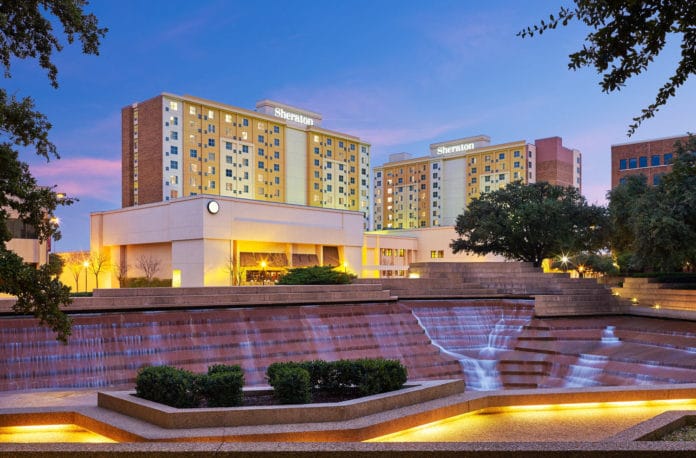The chief executive of Marriott International said the Washington-area hotel giant had no regrets about finalizing its deal to buy Starwood Hotels & Resorts, despite being forced into a bidding war that forced it to offer more than $1 billion than it originally agreed to in November.
“We have the only binding deal with Starwood,” Arne M. Sorenson, Marriott’s chief executive, said in a Friday morning meeting with shareholders. “We have zero buyer’s remorse.”
On Thursday, Beijing’s Anbang Insurance Group walked away from its $14 billion all- cash offer for Starwood, citing “various market considerations.” That paved the way for Bethesda-based Marriott to set a date for consummating a $13.6 billion cash-and-stock offer that would create the world’s largest hotel company.
The combined hotelier, to be based in Bethesda, Md., would have 30 brands with 1.1 million rooms. The deal would bring together Marriott’s Courtyard, Ritz-Carlton and Renaissance Hotels brands with Starwood’s Sheraton, Westin and St. Regis.
“We continue to believe that what we can create by pulling these two companies together is extraordinarily powerful,” Sorenson said, adding that the company did not have immediate plans to eliminate any brands.
Under its current proposal, Marriott would offer $21 in cash and 0.8 shares of its stock for each share of Starwood. Earlier, the company had planned to pay $2 a share in cash and 0.92 shares of Marriott for each share of Starwood as part of a deal valued at $12.2 billion.
“Of course we would love to have this company for $1 billion less, there’s no doubt about that, but they were real with their first bid,” Sorenson said in a interview on the cable business channel CNBC, describing Anbang’s initial offer as “fully financed, fully credible, essentially no conditions.”
Sorenson speculated that the deal simply got too expensive for the Chinese company.
“It’s worth more to us,” he said.
Unlike Anbang, Marriott can capitalize on synergies, he said, wringing out an estimated $250 million in cost savings within two years of the deal’s completion by cutting overhead.
“By combining these two platforms, we will be a bigger buyer of tomatoes or reservations or systems,” Sorenson said. “All of the hotels will benefit from that.”
Sorenson said he has already heard from vendors of the respective companies, a reflection of the potential buying power at play and the possibilities of picking winners and losers.
“In some areas we’ll pick sides and in some areas we won’t pick sides,” he said, referring to rivals who supply each company now.
Once the deal closes, Sorenson said the most important issue going forward is to successfully combine Marriott and Starwood’s large loyalty rewards programs – with 54 million members and 21 million members, respectively. Starwood customers in particular have fretted about changes to the rewards they receive, and Marriott has yet to detail its plans.
Sorenson said the company was mindful of the concerns.
“We’ve got the real possibility of saying to folks, ‘You actually don’t need to belong to any other hotel loyalty program,’ ” he told investors later.
Sorenson said the deal has already received a number of regulatory approvals. A handful of considerations remain, including anti-competition reviews in the European Union and in China, but he said he was confident the deal would pass muster.
Shareholders of Starwood and Marriott are scheduled to vote on the purchase April 8.
Investors seems resigned to the fact that the bidding war was over. In mid-day trading, Starwood shares were down more than 5 percent. Marriott saw its stock fall 6 percent.






